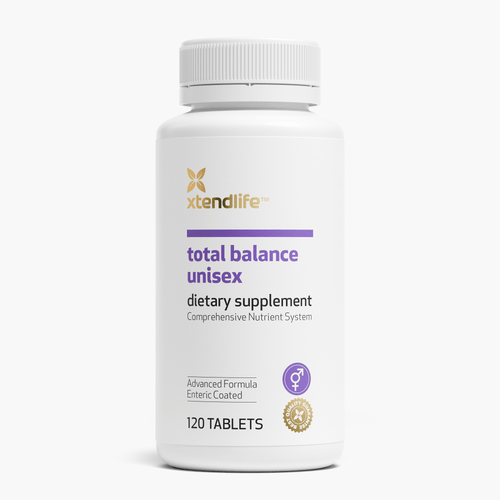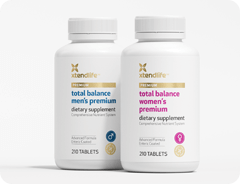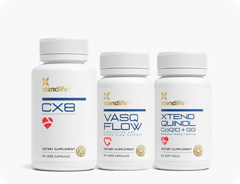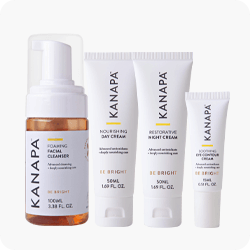We’re working longer hours than ever before, our soil is lacking nutrients, our food is over processed and often travels thousands of miles before it reaches us, and we are exposed to increasing levels of toxins and pollutants. And thanks to our reliance on technology, we never switch off.
With the manic lifestyles that we lead, caring for our health and wellbeing becomes increasingly important. How do we leverage the opportunities available to us to live long, healthy and meaningful lives? There is a range of things we can do to protect and enhance our wellbeing.
1. Heal Your Gut
Good health starts from good digestion. Even with an optimal diet, our nutrition is only as good as what we absorb. To properly absorb and utilize the food we eat, we need a strong digestive system, and a healthy balance of gut flora.
The balance of good and bad bacteria in our digestive system impacts every aspect of our health, from our immunity to our mental health – even our weight.[1]
Unfortunately, the modern lifestyle of processed food, stress, caffeine, sugar, toxins, alcohol and medicinal drugs (especially antibiotics) can upset this delicate balance, leading to a range of digestive symptoms (constipation, Irritable Bowel Syndrome, bloating…) and impacting other areas of our health.
Targeted nutritional supplements can improve digestive function and help restore this delicate balance. Prebiotics, found in kiwifruit, garlic, leeks, and legumes feed the good bacteria in the gut and help to improve digestive function. Kiwi-Klenz, made from New Zealand Kiwifruit works in three ways to improve digestion:
- Contains prebiotics to help feed good bacteria
- Rich in enzymes to help better digest and absorb the food we eat
- High in soluble fibre to keep things moving
2. Nourish your body
You have heard it a million times, but a healthful diet really is the foundation of good health. Aim for 7 serves of vegetables per day, up to two servings of fruit, with moderate amounts of animal protein, legumes, and whole grains. Minimise refined sugar, processed foods and saturated fats, and with moderate amounts of animal protein.
Yet even the most exemplary diet can lack vital nutrients. The way that we grow, ship and store foods has changed dramatically, leading to a loss of vital nutrients (especially minerals) in our diet. The ‘fresh’ apple you purchase from the supermarket may have sat in a cold store for as much as six months! Safeguard your nutritional intake with high-quality supplements. Xtendlife’s Total Balance range provides all the nutrients you need to support a healthy diet.
3. Drink Up
Our bodies are more than 70% water.[2] H20 is fundamental to just about every single process in the body, from thinking through to digestion. Drink 8 glasses a day, every day, more if you are exercising or it’s particularly hot. Bored of plain water? Try sparkling water or herbal teas for something different.
4. Minimise Toxicity
Every day, we’re exposed to thousands of toxins from pollutants, pesticides, vehicle emissions, cleaning and beauty products – even the food we eat. Over time, these toxins can build up and cause a range of health problems – from allergies and metabolic disorders through to some forms of cancer.
Reduce the toxic load on your body by:
- Choosing organic food wherever possible
- Using natural cleaning and laundry products
- Using natural beauty and skincare products (Our skin absorbs everything we put on it!)
- Minimizing use of non-essential medications
- Avoiding smoking
5. Move your body
Movement really is the best medicine. It helps maintain a healthy weight, regulates blood pressure and cholesterol, manages stress, strengthens and tones muscle, improves circulation and strengthens the heart and can even help prevent some cancers. Find something you love and do it every day! 30 minutes is enough.
If you’re a desk dweller, get up every hour and move. Even if you hit the gym every day, sitting for long periods of time can cause metabolic changes that undo the benefits of your daily workout[3]. Get up walk around and stretch – you’ll not only feel better, it’ll improve your productivity too.
6. Manage mood and stress
Pounding heart, tight shoulders, tension headache… We all know what stress feels like! Stress has a profound impact on our short term and long term health. Help manage the impacts of stress and build resilience with B vitamins, magnesium and Vitamin C.
Stay positive, practice gratitude and try to live in the moment. Life is meant to be fun – so make an active intent to enjoy it! Do things you love, spend time with people who make you feel good, and wherever possible, remove the things from your life that make you stressed or unhappy.
7. Sleep Deeply
Want to stay healthy, lean and youthful? Hit the sack. Quality sleep is imperative to good health. It’s when our bodies rest and recuperate, it builds the immune system and even helps regulate appetite and weight.[4] 7-9 hours a night is optimal.
Demanding schedules, travel and physical and emotional stress can wreak havoc with sleep, leaving us tired, wired and frustrated. Fortunately, certain nutrients can help: Calcium can help you fall asleep, while Magnesium is important for staying asleep (If you wake up at 2am – Magnesium is for you).[5]
8. Supplement wisely
Getting all the nutrients we need from our diet is difficult, especially with the increased demands created by toxin exposure, exercise and stress. Quality supplementation is key to good nutrition and health.

With so many supplements on the market though, how do you choose the right one? You need nutrients in the right form that the body can absorb and utilise utilize. Xtendlife’s range is specifically formulated for optimal absorption and utilization utilization – ensuring your body gets optimum benefit.
9. What are the baseline measures for health?
Whether you’re the sort of person who likes facts and figures or not, monitoring your health is important. There are a range of tests that can measure your overall state of health. These are easily available from your doctor.
- Blood pressure
- Cholesterol (Total cholesterol, HDL {good cholesterol}, LDL {bad cholesterol} and triglycerides)
- Blood Sugar ( HbA1C) - HbA1C provides a record of average blood sugars over the last 120 days.
- C-Reactive Protein - A marker of inflammation anywhere in the body
- Weight and waist circumference
- Lung capacity/VO2 Max
- Homocysteine – marker of heart health
Ultimately though, how you feel is the most important measure. How do you sleep? What is your digestion like? How much energy do you have?
References:
[1] Ley, R., Turnbaugh, P., Klein, S. and Gordon, J. Microbial ecology: Human gut microbes associated with obesity. Nature 444, 2006, December:1022-1023.
[2] Lopez, L. Natural Health: A New Zealand A to Z Guide. 2002. 24.
[3] Owen, N., Bauman, A. and Brown, W. Too much sitting: A novel and important factor in disease? British Journal of Sports Medicine, 2009; 43: 81- 83
[4] Spivey, A. Lose Sleep, Gain Weight: Another Piece of the Obesity Puzzle. Environ Health Perspect. 2010 Jan: 118 (1): A28-A33.
[5] Durlach, J., Pages, N., Bac, P. Bara, M. and Guiet-Bara A. Biorhythms and possible central regulation of magnesium status, phototherapy, darkness therapy and chronopathological forms of magnesium depletion. Pub. Med, 2002, Mar, 1 (1-3):49-66.


 Supplements
Supplements Bundles
Bundles










